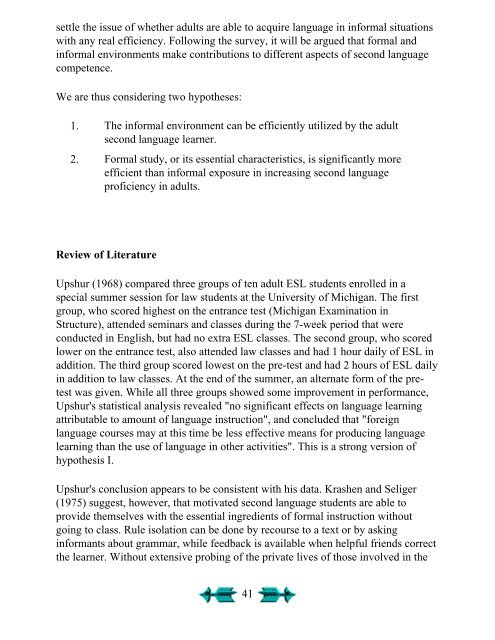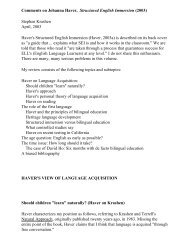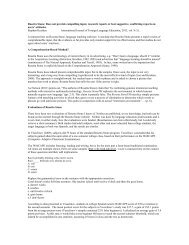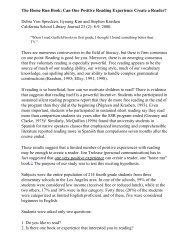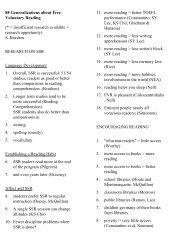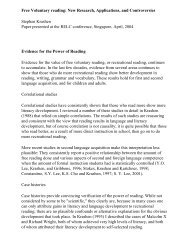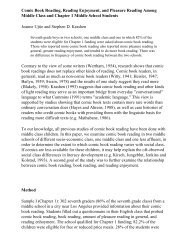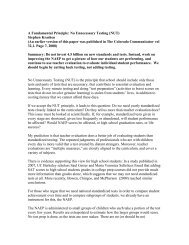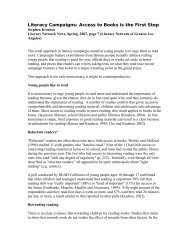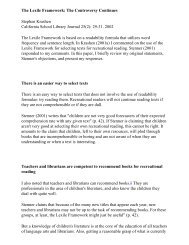Second Language Acquisition and Second ... - Stephen Krashen
Second Language Acquisition and Second ... - Stephen Krashen
Second Language Acquisition and Second ... - Stephen Krashen
You also want an ePaper? Increase the reach of your titles
YUMPU automatically turns print PDFs into web optimized ePapers that Google loves.
settle the issue of whether adults are able to acquire language in informal situations<br />
with any real efficiency. Following the survey, it will be argued that formal <strong>and</strong><br />
informal environments make contributions to different aspects of second language<br />
competence.<br />
We are thus considering two hypotheses:<br />
1. The informal environment can be efficiently utilized by the adult<br />
second language learner.<br />
2. Formal study, or its essential characteristics, is significantly more<br />
efficient than informal exposure in increasing second language<br />
proficiency in adults.<br />
Review of Literature<br />
Upshur (1968) compared three groups of ten adult ESL students enrolled in a<br />
special summer session for law students at the University of Michigan. The first<br />
group, who scored highest on the entrance test (Michigan Examination in<br />
Structure), attended seminars <strong>and</strong> classes during the 7-week period that were<br />
conducted in English, but had no extra ESL classes. The second group, who scored<br />
lower on the entrance test, also attended law classes <strong>and</strong> had 1 hour daily of ESL in<br />
addition. The third group scored lowest on the pre-test <strong>and</strong> had 2 hours of ESL daily<br />
in addition to law classes. At the end of the summer, an alternate form of the pretest<br />
was given. While all three groups showed some improvement in performance,<br />
Upshur's statistical analysis revealed "no significant effects on language learning<br />
attributable to amount of language instruction", <strong>and</strong> concluded that "foreign<br />
language courses may at this time be less effective means for producing language<br />
learning than the use of language in other activities". This is a strong version of<br />
hypothesis I.<br />
Upshur's conclusion appears to be consistent with his data. <strong>Krashen</strong> <strong>and</strong> Seliger<br />
(1975) suggest, however, that motivated second language students are able to<br />
provide themselves with the essential ingredients of formal instruction without<br />
going to class. Rule isolation can be done by recourse to a text or by asking<br />
informants about grammar, while feedback is available when helpful friends correct<br />
the learner. Without extensive probing of the private lives of those involved in the<br />
41


